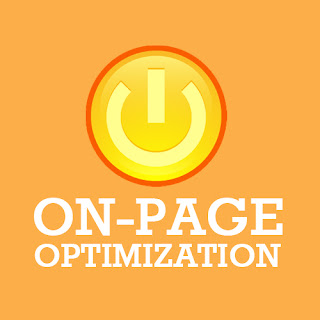Search Engine Optimization strategies include on-page and off-page SEO; the difference being that on-page SEO uses only the elements of the site without any external elements and off-page SEO includes elements that relate to SEO beyond your site. On-page SEO services can also help you achieve desirable results. Choosing the right SEO company for your requirements is as important as the expectations that you have from them. There are many ways to optimize your webpage; a few pointers are given below –
• Research and test various keywords before selecting them for inclusion in the content.
• Focus on keyword density but do not over-use the keywords as the search engines can tell if you are trying too hard to please them.
• Keywords are important, but don’t forget good, original content can make or break a website. Focus on giving the user value for having visited your site by providing amazing and fresh content.
• Try to have a URL that is closely related to your keyword or better still, have the most important keywords in it.
• Meta descriptions are often sidelined but they are very important for the search engines to recognise the topic and content of your website.
• The internal links should be optimised for efficient navigation within the website by using the services of a reputed SEO company.
• Pay attention to ALT tags and H1 tags.
• Structure the sitemap to be extremely user friendly and good in terms of XML.
• Quick loading websites are preferred by users as not every place and person has high speed connections and if you website loads slowly, they will run out of time and patience.
• Make sure your site is easy to use, easy to read and distraction free.
• Provide a little something extra like blogs and engaging articles on your website that will add to its appeal.
• Web robots find information about your site though robot.txt files and it is sensible to make them appropriate.
• If you need to change your URL or merge two websites for some reason, use the server-side 301 redirect. This will be helpful in retaining 90-99% link juice of the previous site/sites.
Use SEO services from a provider that will give due thought to important search engine optimization strategies and make sure you do not lag behind because of bad on-page SEO.
• Research and test various keywords before selecting them for inclusion in the content.
• Focus on keyword density but do not over-use the keywords as the search engines can tell if you are trying too hard to please them.
• Keywords are important, but don’t forget good, original content can make or break a website. Focus on giving the user value for having visited your site by providing amazing and fresh content.
• Try to have a URL that is closely related to your keyword or better still, have the most important keywords in it.
• Meta descriptions are often sidelined but they are very important for the search engines to recognise the topic and content of your website.
• The internal links should be optimised for efficient navigation within the website by using the services of a reputed SEO company.
• Pay attention to ALT tags and H1 tags.
• Structure the sitemap to be extremely user friendly and good in terms of XML.
• Quick loading websites are preferred by users as not every place and person has high speed connections and if you website loads slowly, they will run out of time and patience.
• Make sure your site is easy to use, easy to read and distraction free.
• Provide a little something extra like blogs and engaging articles on your website that will add to its appeal.
• Web robots find information about your site though robot.txt files and it is sensible to make them appropriate.
• If you need to change your URL or merge two websites for some reason, use the server-side 301 redirect. This will be helpful in retaining 90-99% link juice of the previous site/sites.
Use SEO services from a provider that will give due thought to important search engine optimization strategies and make sure you do not lag behind because of bad on-page SEO.




